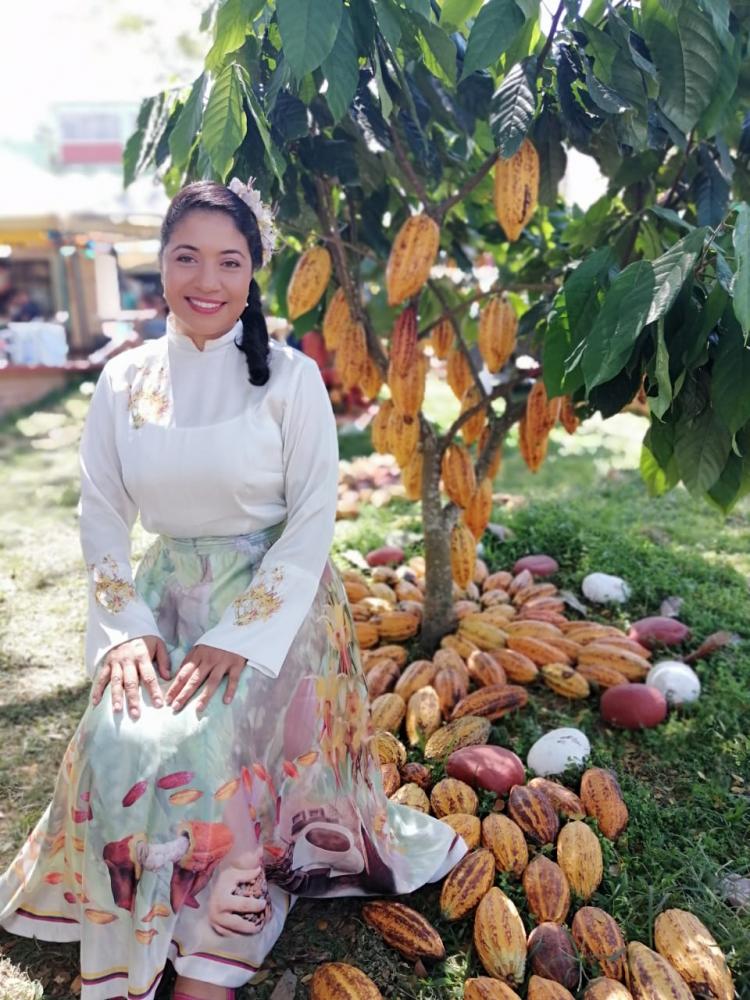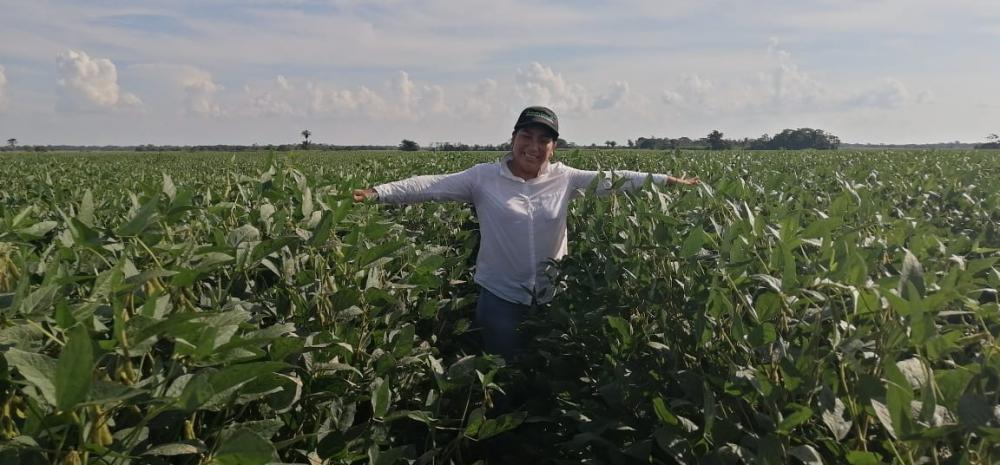Covid-19 is widening the gender divide and endangering the food and health security of farmers

San Jose, 19 May 2020 (IICA) – In a series of virtual forums organized by the Inter-American Institute for Cooperation on Agriculture, rural women of the Americas spoke of the injustices and challenges that the current pandemic has brought to their lives, families and communities, and the consequent impact on food security.
Problems such as limited access to land, minimal training opportunities, economic constraints and an excessive share of family care responsibilities were some of the conflicts that were pinpointed during the discussions. The sessions saw the participation of producers, community leaders, as well as representatives of indigenous communities, government institutions and international organizations.
Throughout the forums, which covered the Mesoamerican, Caribbean, Northern, Southern and Andean regions, there was an overriding concern about the repercussions of Covid-19 on production activity in the territories.
For example, one participant from Venezuela spoke about having to walk for miles to sell her products, due to gasoline shortages, and about accessing health services in communities that are experiencing water shortages. She mentioned that finding basic production inputs had become extremely difficult and that limited or no Internet access, although a serious problem, was the least of their concerns.
According to Yelmi Urrutia, Coordinator of Venezuelan family farming project, Proyecto Huertos Familiares (Acción Campesina), “The Covid-19 crisis, coupled with the fuel shortage, has made the transportation of goods problematic and limited people’s ability to access food. Rural women are forced to walk long distances to buy basic inputs”.
One of the greatest sources of concern was the danger of losing the few agricultural lands that are in the hands of women, and which allow them to maintain their families.
María Sánchez, a lawyer in human rights and organized labor for the ZOQUE indigenous community, remarked that “The economic situation in Mexico does not look very encouraging. I foresee the sale of land in rural areas due to Covid-19”.
Director General of IICA, Manuel Otero, reflected that, “The pandemic has set us back in terms of gender issues, because women’s responsibilities in caring for the family have increased. Yet, we are not going to return to the past. Social issues should be given greater importance and it is imperative that we incorporate a gender focus into new development strategies”.
The pandemic and an excessive share of responsibilities
Rural women in various regions of the Americas stated that their access to technological tools is often limited if they have no Internet connection. The situation is further exacerbated by the fact that most of their time must be spent caring for children and working in the field.
“At the start of the pandemic, we were paralyzed with fear”, admitted Karina Águilas, President of the Gender Committee and a farmer and member of the Manduvirá Cooperative in Paraguay. “But we have used our creativity to mitigate its effects and to continue producing”.
“One of the main issues created by Covid-19 is the need to ensure guidance and opportunities for rural women to continue training”, she added.
On the other hand, Jussara Dantas, a founding member of the Brazilian family farming cooperative, Cooperativa Agropecuária Familiar de Canudos, Uauá y Curaçá (COOPECUC), explained that “We sell some of our products via e-commerce, but some farmers have logistical difficulties in ensuring these goods reach consumers, due to social distancing and the lack of Internet access”.
Some countries have implemented projects to overcome the time constraints that women face.
“Accessing training is a tremendous obstacle that women face. It is our responsibility to facilitate these processes for women in the field, who may not have sufficient available time, due to their responsibilities. In Costa Rica, we provide child care centers to allow them sufficient time and the opportunity to take part in production processes to boost their income”, said Xinia Cháves, coffee producer and Executive Director of the Coffee Institute of Costa Rica (ICAFE).
Rosalia Pereiro, from the Gender Secretariat of the Union of Land Workers of Argentina (UTT), and Zulma Molloja, UTT spokesperson, stressed that despite the pandemic, rural women continue to produce food - contemplating care - but that the context is very hard and the inequalities are accentuated.
"We have around 200 rural gender promoters in 13 provinces of Argentina, where the reality of women is much starker," said Pereiro. Zulma Molloja added: “In the midst of this deepening inequality, women continue to fulfill the roles of caring for families and their communities, they continue working to carry out bags of food for those who do not have and have school canteens to affect food security"
A comment that was made repeatedly in the forums was the producers’ fear of going out to cultivate the fields and the consumers’ fear of becoming infected. Access to water was also named as a major challenge.
María Tuyuc, President of the Global Network of Indigenous Entrepreneurs in Guatemala, indicated that, “The pandemic has made it clear that there is a great need for strategic measures to ensure the survival of humankind. In Guatemala, many communities have reported that agricultural products have been rejected out of fear that they are contaminated with the virus”.

“Climate change and drought are severely affecting family farming in Chile, mainly when we have to choose between washing our hands and watering the fields”, said Caro Acevedo, Present of Chile’s National Beekeeping Network
There was also a marked concern in the forums that the pandemic would trigger setbacks in terms of human rights, agricultural productivity and food security.
Alejandra Mora, Executive Secretary of the Inter-American Commission on Women at the OAS, remarked that, “It is time that countries look to agriculture, rurality and the pivotal role of women to guarantee health and food security”.
“Young people have to take over the reins of the rural sector”, insisted Lucia Quintana, Director of Ecuador’s National Coffee Board (CONVEAGRO). “The average age of workers in this sector is relatively advanced and the older age group is particularly vulnerable to the virus”.
Federico Villareal, IICA’s Director of Technical Cooperation, maintains that the organized forums enabled the Institute to gain a more in-depth understanding about some of the problems currently being experienced by women in the hemisphere, which will allow it to propose concrete solutions. These forums are available at www.iica.int and on the organization’s social media sites.
More information:
Institutional Communication Division
comunicación.institucional@iica.int